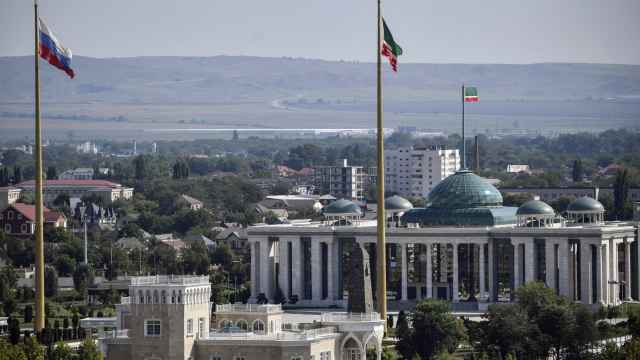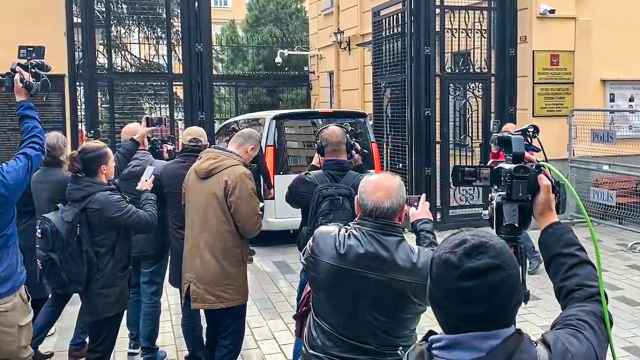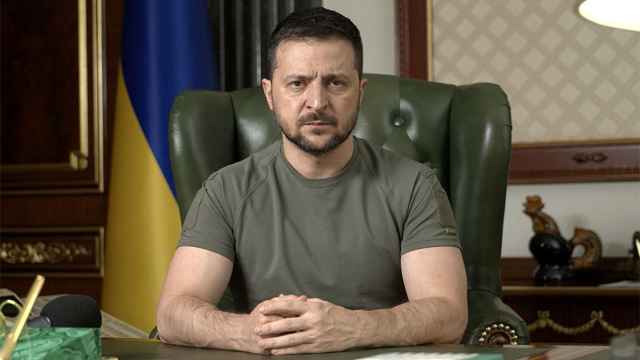The Moskovsky Komsomolets newspaper called former Ukrainian Prime Minister Yulia Tymoshenko, who was given a seven-year sentence last week, “Yulia Khodorkovskaya.” Meanwhile, a new “Khodorkovsky” might be in the making in Georgia, where a prominent billionaire, Bidzina Ivanishvili, has effectively declared war on the president and was deprived of his Georgian citizenship.
Any Russian journalist visiting Georgia these days cannot avoid pro-government Georgian officials who still wax eloquent about the “incontestable achievements” of the Rose Revolution and the transcendental qualities of their beloved leader, President Mikheil Saakashvili.
“In Georgia,” they say, “the police never take bribes, the state bureaucracy runs like clockwork, street crime is unheard of, and we have a thriving, modern tourism industry.”
With a net worth of $5.5 billion, Forbes magazine ranks Ivanishvili as the world’s 185th wealthiest individual. The billionaire amassed his fortune in Russia in the metals and banking industries. Following the Rose Revolution in 2004, he moved to Georgia where Saakashvili let him hold dual Georgian-Russian citizenship.
Ever since, Ivanishvili has been active in charity work. For example, he helped finance the construction of the massive Holy Trinity Cathedral that has become one of Tbilisi’s main tourist attractions. He installed a modern amusement park outside Saakashvili’s favorite seaside town of Batumi and pays workers at the nearby Botanical Gardens twice the usual state salary. He remodeled all the theaters in the capital and pays a monthly salary of $1,500 to leading figures in the arts and culture. Ivanishvili purchased a fleet of modern automobiles for the country’s honest and upstanding police force.
But in early October, Ivanishvili publicly turned against Saakashvili. In the past two weeks, Ivanishvili has repeatedly accused the authorities of creating a totalitarian, corrupt government — one that suppresses the opposition, controls the media and has Brezhnev-like conditions in the country’s political and economic spheres.
What’s more, Ivanishvili has announced plans to create a new political party and seek the office of prime minister or speaker of the parliament. He has invited all journalists and others who lost their jobs because of their anti-Saakashvili stances to join his party. He has also offered to purchase privately owned national television channels for three times their market price and then, after the election, sell them back to the original owners for 1 lari (61 cents).
Ivanishvili’s demarche has been met with mixed reactions. The authorities, apparently only now discovering that he also holds a French passport, stripped him of his Georgian citizenship. Chabua Amirejibi, a highly respected Georgian literary figure who spent 16 years in Stalinist prison camps, has practically hailed Ivanishvili as a messiah who is trying to free the Georgian people from Saakashvili’s autocracy. People with close ties to the business community claim that Ivanishvili is tired of the government’s constant demands for charitable handouts even while prohibiting him from investing in choice bits of real estate.
It is remarkable how Russia, Ukraine and Georgia — Color Revolutions or not — have all adopted basically the same strategy of persecuting their respective Enemies No. 1.
Alexei Pankin is editor of WAN-IFRA-GIPP Magazine for publishing business professionals.
A Message from The Moscow Times:
Dear readers,
We are facing unprecedented challenges. Russia's Prosecutor General's Office has designated The Moscow Times as an "undesirable" organization, criminalizing our work and putting our staff at risk of prosecution. This follows our earlier unjust labeling as a "foreign agent."
These actions are direct attempts to silence independent journalism in Russia. The authorities claim our work "discredits the decisions of the Russian leadership." We see things differently: we strive to provide accurate, unbiased reporting on Russia.
We, the journalists of The Moscow Times, refuse to be silenced. But to continue our work, we need your help.
Your support, no matter how small, makes a world of difference. If you can, please support us monthly starting from just $2. It's quick to set up, and every contribution makes a significant impact.
By supporting The Moscow Times, you're defending open, independent journalism in the face of repression. Thank you for standing with us.
Remind me later.





